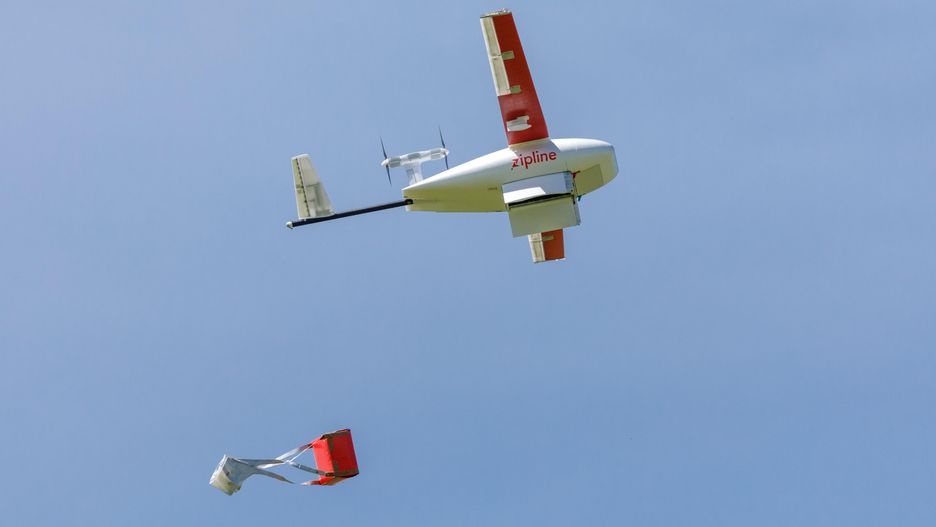Operators of Fly Zipline Ghana have revealed that the company will by the second quarter of the year begin operations of using drone technology to deliver blood and other essential medicines to health facilities within the country.
It will be recalled that Parliament in 2018 gave approval for the company to operate in the country in a bid to improve the health care delivery system in the country.
[contextly_sidebar id=”HNQoFTaonAooloKn2YZlIhNJm0z7ZJ84″]The first facility will be built in the Eastern Region and will have the capacity to supply blood to some parts of Ashanti, Greater Accra, Central and Volta Regions.
This latest information was made known to journalists by the Head of Systems Integration of Zipline Ghana, Daniel Marfo during a facility tour of Zipline in Rwanda.
Though the cost details of Zipline’s operations in Ghana are unclear, the Ghana Health Service indicated that the project cost per service delivery of $17 is lower than the purported cost of $22.7 per delivery in Rwanda.
The Fly Zipline contract will run for four years and $88,000 will be used per a distribution centre per month when fully deployed.
Zipline is also guaranteeing an average emergency delivery time of less than an hour and at least 150 flights daily.
The drones will operate 24 hours a day from four distribution centres which will stock 184 lifesaving and essential medical supplies.
Criticisms
The Minority in Parliament consistently criticised the agreement describing it as a rip-off.
It also said operating the services will cost the state $145,000 dollars monthly at each distribution centre.
A policy think tank, IMANI Africa, also called for a review of the deal and noted that flying blood and other essential medical supplies via drone technology will not do much to improve the country’s health sector.
The Ghana Medical Association also called on the government to suspend the deal because it does not fit into the country’s existing healthcare policy.
Defense from Zipline
The Systems Integration Manager at Fly Zipline, Daniel Marfo, has said the drone technology to be used in supplying blood should be viewed solely as an emergency intervention.
Speaking on Citi TV’s Face to Face, Mr. Marfo said that feasibility studies by Zipline revealed that health centres in Ghana face various challenges and as a result, he expects the introduction of the drones will help save lives during emergency circumstances.
“When products actually run out, you can actually lose a lot of lives, so we are providing an emergency delivery service. We are not replacing normal delivery” Mr. Marfo noted.
–
By: Anita Arthur | citinewsroom.com | Ghana














